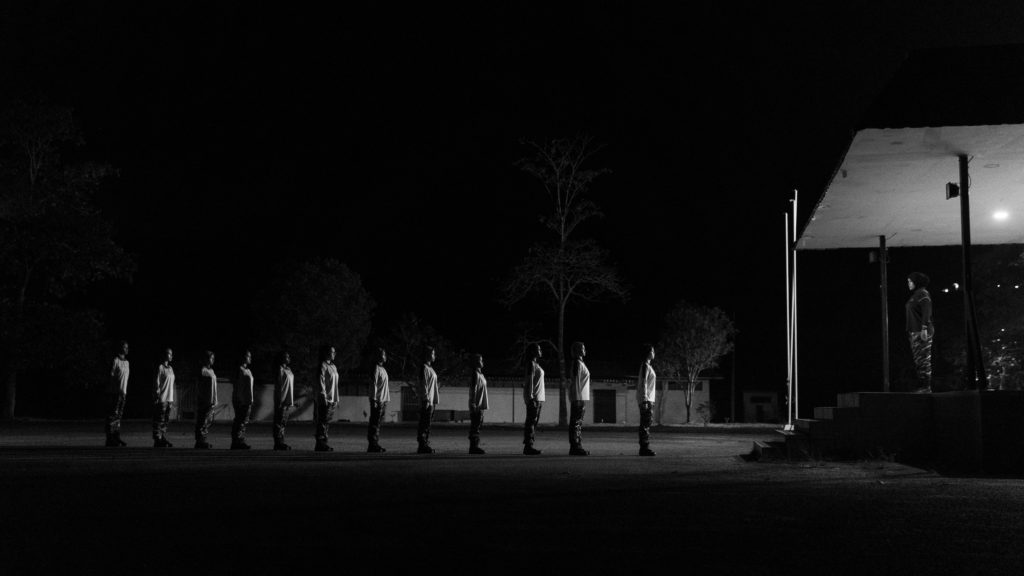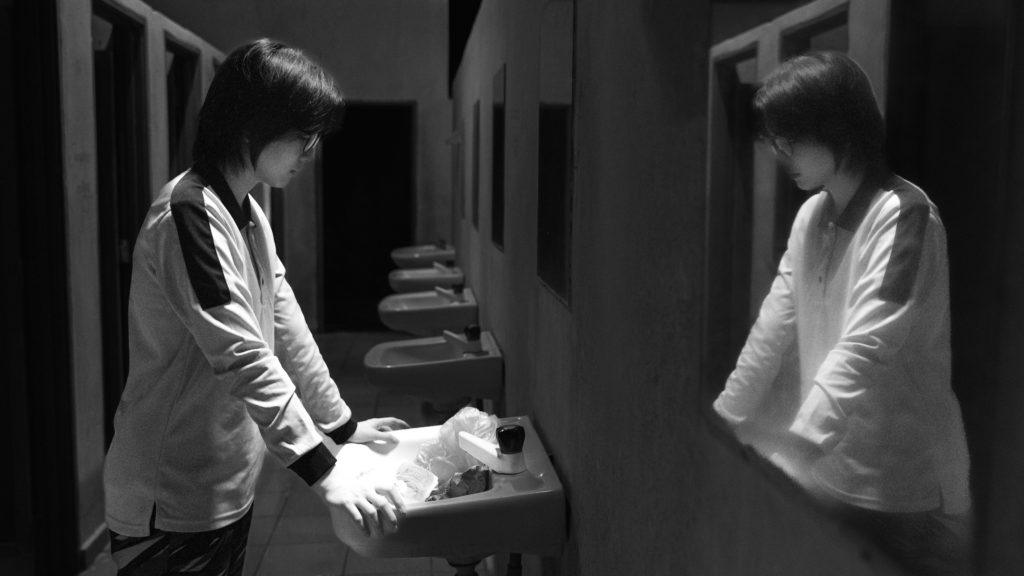Locarno Review: WaShhh (2024)
Locarno Film Festival
Pardi di Domani – International Competition

You don’t have to venture outside of the European continent to find out that expectations from women are different than those from men. With the rise of the influence of conservative, right-wing parties across the globe, women’s rights are being constantly endangered by restrictive laws and regulations designed to put them “back to their place”. Add a pinch of religion to it, and sometimes an ounce of racism and you will land in a world of both official and unofficially written rules by anyone who comes to a position of power and is misogynistic and sadistic enough to make them work.
In many corners of the world, menstruation is tied to several taboos. It is regarded as a weakness, a curse, an impurity that brings bad luck or awakes ill-meaning ghosts who will come to feed on blood or possess someone’s body. Women are being told that they can not enter places of worship when they menstruate, they are banned from family gatherings, or sent to makeshift shelters. In countries like Nepal and India women on their period are not allowed to touch food and crops because they could bring bad luck to their families or the entire community, in Bolivia the girls are told that menstrual blood can cause severe illnesses in other people… The list goes on. Let’s not forget the so-called “period tax” – the gender taxing of products as luxury goods, even though they are a necessity for billions of menstruating women. In many countries, girls and women can not afford to purchase any of those products and are forced to use rags and even old newspapers which bring some serious infections and other severe health problems. Even if they can, they are met with another set of taboos.
Despite efforts to change things for the better, the biggest enemies of women’s control of their own bodies are the guardians of “tradition” of all genders: mothers who let their daughters be circumcised or dragged away to hide in dark, secluded places during their periods, fathers who tell them down and force them to marry at a very young age because they are “officially” ready to bear a child. Guilty of discrimination are also the educators with their iron fists who demand their students to commit to humiliating rituals of cleaning the exact products that were designed to be disposed of. Only men can bleed without judgment.
Inspired by a traumatic experience as an 18-year-old while serving in the Malaysia National Service programme, the Chinese helmer Mickey Lai brings the piece of many girls’ nightmares to the screen by returning to the same crime scene. She recreates her personal experience in an all-girls institution consisting of young women of different origins who live under the strict supervision of a religious and superstitious guardian.
Washhh is a sober, chilling study of gender-based discrimination shot in ice-cold black-and-white photography handled by the DoP Lee Kah Giap. His lens uncompromisingly eyes the chaotic events during one single night in the camp’s washing room, barely ever parting from the film’s main protagonist Jia Hui (Li Xuan Siow) who, shocked about the late night wake-up call performs her task with obvious disappointment in the system and anger about the humiliating situation she became a part of. In a place that is supposed to be inclusive due to the nature of its programme, she rightfully questions the guardian’s decision to wake up the whole dorm to punish them for a couple of sanitary products left behind, unwashed. “Since day one, I told you not to leave your unwashed things behind”, the stern head of the camp says to the girls from dorm 7 gathered outside in the camp’s yard, steel sleepy and in great fear of what is coming. Aligned in a perfect row, with their combat boots on, they dare not react. There is an alleged case of “possession” in another dorm, they are told. The girl complained about the stench coming from their bathroom. “Bad hygiene attracts spirits”, she continues. Jia Hui is asked to open each cramped sanitary napkin from the trash bin to check out if they were properly rinsed. All unwashed pads are put in a bag.
The humiliation goes on. When one of the Muslim girls faints, the rest of the dorm is being blamed for her condition: “Every religion is against dirtiness”, they are told. When Jia Hui the “captain” of the dorm points out that rinsing the sanitary pads isn’t even the rule, she gets scorned by the angry educator who is still giving commands about the cleaning procedures.
WaShhh is a great commentary on gender inequality, shot with precision and edited by Wong Kai Yun in a thriller-like manner. It is a film that will not leave anyone cold. At the same time, the film is a wake-up call to react and finally take action to make the world a better place regardless of one’s upbringing.

Title: WAShhh
Running Time: 23′
Shooting Format: Digital
Aspect Ratio: 1.78:1
Language: Malay, English, Chinese
Production Countries: Malaysia, Ireland
Production Year: 2024
Screening Format: DCP, ProRes, H.264
Colour: Black and White
Sound: 5.1
Written and Directed By: Mickey Lai
Producer: Lim Shu Jia
Co-Producers: Wong Kew Soon, Ciarán Charles
Director of Photography: Lee Kah Giap
Location Sound Mixer: Yeo Loi Hooi
Art Director: Soon Yong Chow
Stylist: Elaine Ng
Editor: Wong Kai Yun
Colourist: Beh Jing Qiang
Sound Designer: Ines Adriana
Music Composer: Ryota Katayama
Poster Designer: Lai Wen Xin, Gan Chu Fan
















